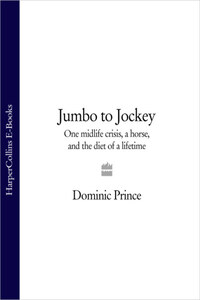Prologue
It’s early January and I am standing on the scales, singing. I come from a long line of people who sing out loud. My dad did it and my son Jack has inherited the trait. Not that I have much to sing about where I am standing now, mind. I can’t see my feet and it is only by peering over the expanse of my stomach that I can see, aged forty-seven, I am topping 16½ stone. While it was not always like this, it is not entirely surprising. I was born at the beginning of January 1961 at what was then the London Hospital, Whitechapel, in the East End of London. I weighed in at 11lb 6oz and remained for the rest of the year the fattest baby born at the London Hospital. I find it difficult to believe that my mother has ever forgiven me.
My clothes are tight. The waistband on my trousers cuts into my paunch and the 16-inch collars pinch at my Adam’s apple. The flesh rumples beneath the top button, and it feels like slow strangulation. I have been fighting an unwinnable battle for years, brought on by my own greed and slothfulness. Running for a bus is not nice. Little nodules erupt on the inside of my thighs and they are pretty painful. They are only there because my thighs are too fat and rub together like great elephant legs. I have a constant nagging paranoia about my health, high blood pressure and the possibility of a heart attack and a multitude of other life-threatening diagnoses, and yet I have hardly taken any exercise for two and a half decades.
I’m a middle-aged journalist, with a twenty-a-day fag habit. I drink much more wine than I should, and eat more than almost anyone I know. The prognosis is not ideal. My wife says she fears for the future. ‘What, that I might die?’ I ask, expecting her to break down in self-pitying tears at the prospect. ‘No, that you might have a stroke aged fifty and I’ll be lumbered with looking after you for the rest of my life.’ She’s nothing if not down to earth, my wife.
Although my condition is entirely self-inflicted, in my defence I must say that I do not stuff myself with junk food and drink gallons of lager. My girth has been built, not only on thousands of great restaurant lunches that were traditionally part and parcel of a hack’s life, but on a delicious supply of home cooking. My wife, Rose, is a cookery author and food critic. For the last ten years she has written on a subject she is passionate about, and I have been happily sampling the by-product of her career. We both love eating and are obsessive about buying good food, going to what most people would think extraordinary lengths to eat the best.
In our house in London we grow our own vegetables in old wooden wine boxes and at the cottage in Dorset we plant them in a raised bed in the garden. I make bread from the wonderful oily flour supplied by Mr Stoate from Shaftesbury who mills his wheat between two stones using the River Stirkel to power the milling process. We have even kept sheep. When we were first married we kept a variety called Castlemilk Moorit and more recently I bought eight Texel lambs that we fattened and had killed in our local slaughterhouse. We then feasted on the sweet, crisp-skinned and beautifully butchered animals.
Over the years we have travelled thousands of miles to seek out the most delicious, well-hung, black sides of beef from an array of butchers around the country. The best sausages that I have ever eaten come from John Robinson, a butcher in Stockbridge, Hampshire. Sausages are one of my top ten favourite meals. Mr Robinson sells three tons a week at his tiny shop, on a counter no more than 15 feet long, and he employs around eighteen butchers. The meat and game is exemplary. Every child in the world I have ever met goes mad for Stockbridge sausages, and fights have even broken out over them they’re so good. They mince English shoulder of pork, add sage and other herbs and pump out the sausages by the trayful. They don’t use preservatives, so they won’t do mail order. If you want Robinson’s sausages you have to go and collect them, but the journey is worth it.
A little further down the A30 from Stockbridge, going towards Salisbury, is Hollom Down Growers, a smallholdingcum-market garden where the most luscious soft fruit grows and ripens. In season, there are fields and fields full of huge, sweet strawberries, petite juicy raspberries, and tomatoes with such intense flavours that they might have been grown in Tuscany. Potatoes, leeks, apples, squashes, cucumbers, lettuces, peas, beans and onions can all be found there. And then there is always the creamy, sometimes sharp-flavoured cheeses assembled on the kitchen table for picking at and devouring after dinner in huge swathes of unadulterated, masticating passion.








